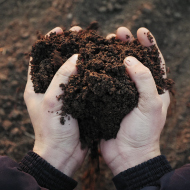
Bacterium’s survivability could explain high transmission rates
In a recent study at the University of Surrey and the University of Geneva, scientists discovered that the bacteria that causes bovine TB can survive and grow in single-celled organisms found in soil and dung.
In order to find out how the bacterium Mycobacterium bovis (M.bovis) – which causes bovine TB – can survive in different environments, scientists infected an amoebae known as Dictyostelium discoideum with the bacterium.
Unique from other bacterium, which were digested by the amoebae, M.bovis continued to survive unharmed for two days, using the same genes to escape the amoebae that it used to avoid being killed by immune cells in cattle and humans.
It was also discovered that M.bovis continued to grow at lower temperatures than previously thought, although at a slower pace.
Until now, it was thought that M.bovis could only replicate at 37°C, however, in this new study replication of the bacterium was identified at 25°C.
Researchers speculate that the bacterium’s ability to survive in amoebae, as well as it’s adaptability in different temperatures, explain the high transmission rates of M.bovis between animals.
Professor Graham Stewart, lead author and head of the department of microbial sciences and the University of Surrey, said: “Despite implementation of control measures, bovine TB continues to be a major threat to cattle and has an enormous impact on the rural economy. Understanding the biology behind the TB disease and how it spreads is crucial for a balanced discussion on this devastating problem and to developing preventative measures to stop its spread.”
Prof Stewart also addressed the potential this new study has created for “carrying out at least some future TB research in amoebae rather than large animals.”



 The latest
The latest